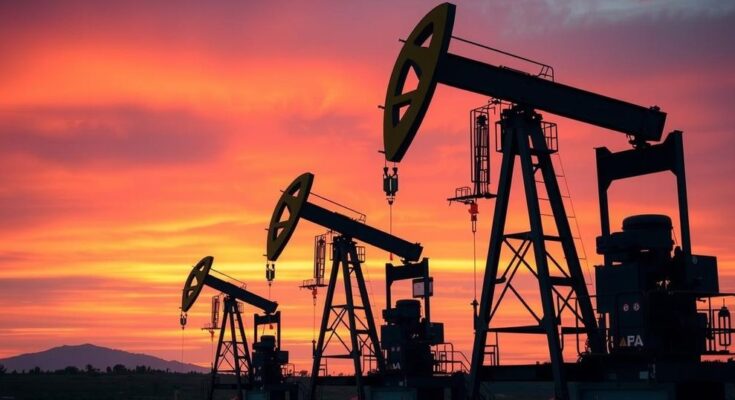PDVSA is set to independently produce crude oil in Venezuela following the revocation of Chevron’s operating license by the U.S. The Trump administration’s decision, based on electoral and migration issues, prompts PDVSA to plan for continued production without reliance on Chevron, aiming to export heavy crude and refine domestically.
The state oil firm of Venezuela, PDVSA, will independently manage crude production from its joint ventures with Chevron following the United States government’s cancellation of Chevron’s license to operate in Venezuela. President Donald Trump revoked a sanction waiver that previously permitted Chevron’s presence in the country, citing Venezuela’s insufficient electoral reforms and migration policies.
With this waiver now rescinded, Chevron is preparing to cease its operations and exports from Venezuela by April 3, having previously exported approximately 200,000 barrels per day (bpd) of heavy crude to the U.S. PDVSA is developing strategies to maintain production, projecting outputs in the range of 105,000 to 138,000 bpd of Hamaca heavy crude.
This production strategy will align with recent outputs, as detailed in internal PDVSA documents. The firm plans to allocate part of the Hamaca crude for domestic refining, while simultaneously seeking new export markets beyond the United States. PDVSA aims to enhance the availability of diluents for upgrading heavy crude, which is crucial for pipeline transport.
In the wake of U.S. sanctions impacting Chevron’s operations in Venezuela, PDVSA is poised to take over crude production and is making necessary adjustments to its output strategies. The company has outlined plans to sustain production levels while exploring new markets for its heavy crude oil exports. PDVSA’s actions underscore the complexities of Venezuela’s oil industry amid shifting geopolitical dynamics.
Original Source: oilprice.com




